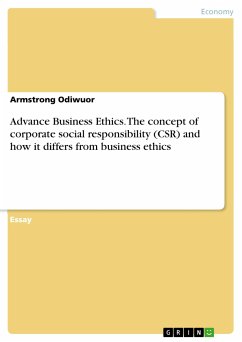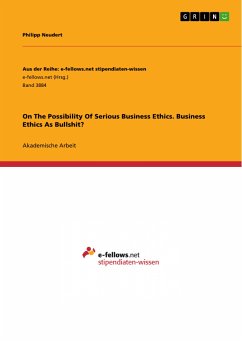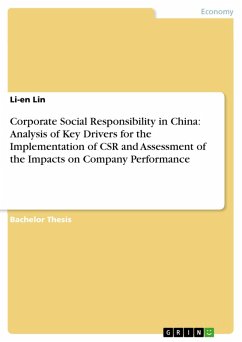Essay from the year 2024 in the subject Business economics - Business Ethics, Corporate Ethics, grade: A, Free University of Berlin (Business Administration and Management), course: Business Management, Marketing, language: English, abstract: This analysis paper delves into the intricate relationship between corporate social responsibility (CSR) and business ethics, elucidating their definitions, distinctions, benefits, drawbacks, and impacts. Corporate social responsibility encompasses an organization's commitment to integrating environmental and social concerns into its operations and interactions with stakeholders. It stands apart from philanthropy and charity, emphasizing a broader scope of initiatives aimed at achieving a balance between social, environmental, and economic imperatives. On the other hand, business ethics pertains to the ethical decision-making processes within a business, encompassing issues such as workplace discrimination, corporate governance, and insider trading. This paper explores the benefits of CSR, including enhanced reputation, brand image, stakeholder relations, and employee satisfaction. However, it also scrutinizes the drawbacks, such as resource intensiveness, investor resistance, and potential profitability challenges. Moreover, it highlights the role of organizational values in shaping CSR initiatives and discusses the increasing importance of CSR in the global economy. Drawing from contemporary literature and empirical evidence, this paper provides insights into how CSR and business ethics intersect and influence organizational behavior and performance. It underscores the significance of aligning CSR initiatives with core business values and strategies to foster sustainable development and competitive advantage in today's dynamic business landscape.
Dieser Download kann aus rechtlichen Gründen nur mit Rechnungsadresse in A, B, BG, CY, CZ, D, DK, EW, E, FIN, F, GR, HR, H, IRL, I, LT, L, LR, M, NL, PL, P, R, S, SLO, SK ausgeliefert werden.









